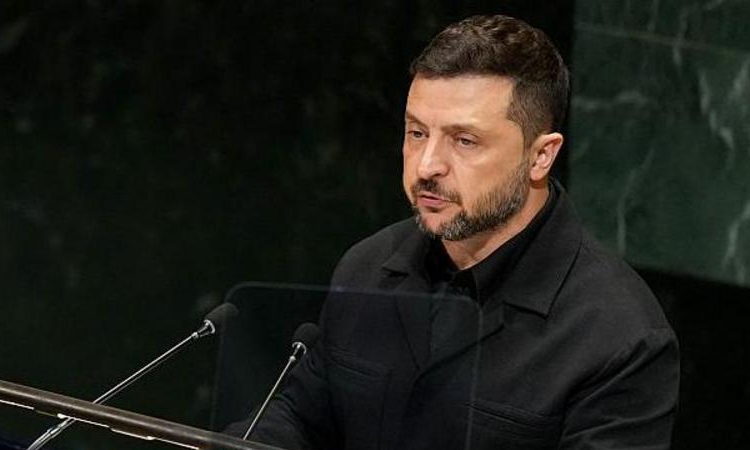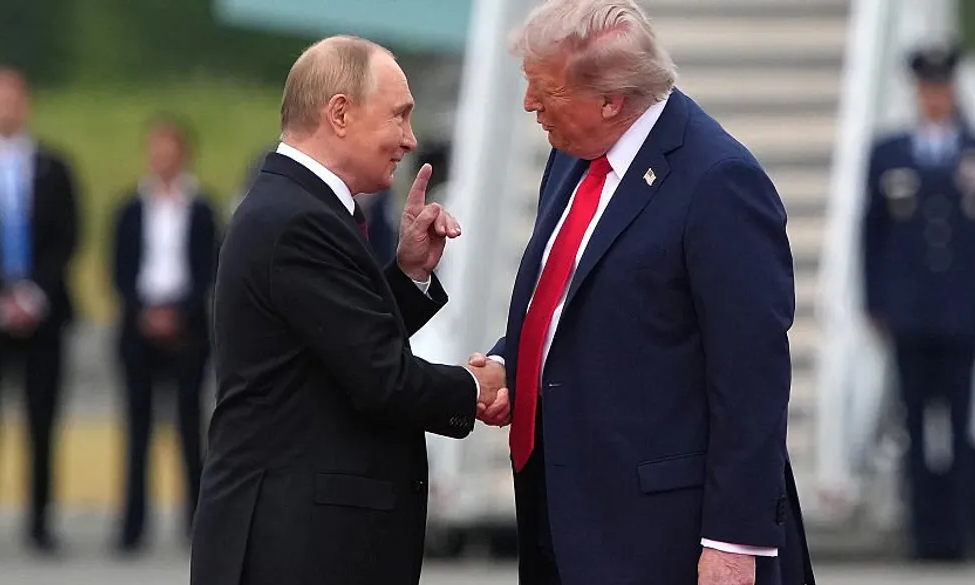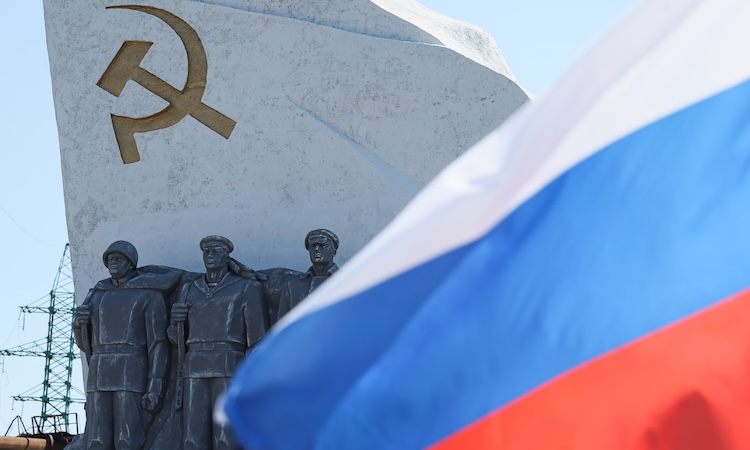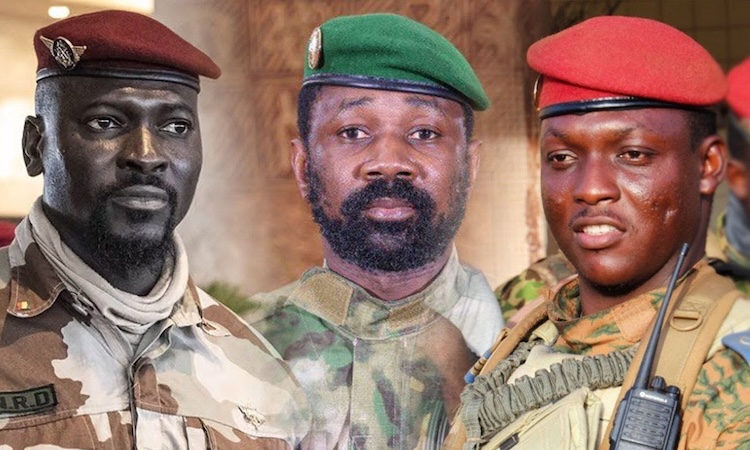The following interview with Russian foreign minister Sergei Lavrov was conducted by RT at the St Petersburg International Economic Forum (Spief) in June. It is reproduced here with thanks.
*****
RT: Hello, Mr Lavrov, thank you for agreeing to speak with us.
Hello.
RT: Let’s start with Ukraine. As we all know, the western countries continue pumping Ukraine with weapons. They supply arms, including the ones that are used by Ukrainian diversion reconnaissance groups on Russian territories. Ambassadors of unfriendly countries have been summoned by the foreign ministry numerous times. However, there are talks about new deliveries of F-16s and maybe even more advanced missile systems. As you mentioned, the F-16 jets could accommodate nuclear weapons, which can lead to unacceptable escalation. And here is my question in that context: will Moscow adjust its stance on the relations with western powers?
I think the stance changed drastically a long time ago, because we can no longer rely on the promises given by the west and the agreements it signed. Those agreements were presented as a foundation for building constructive partnership between the Russian Federation and the west. The relations between the Russian Federation and the west were paused in almost every area. In some situations they were halted, and will probably stay that way for a long time.
I don’t know when that could change. At this point in history, the west has lost Russia. I have no doubt about it. And the sooner we part with the remaining illusions, the better the situation will be for our own growth. The president has given a clear assessment of the current context. He gave a lot of examples of how for a long time after the Soviet Union ceased to exist Russia was trying to build good relations with the west, seeing it as a strategic partner or maybe even an ally.
And everything turned into dust, because the west wasn’t ready for equal partnership. The west saw us as just some territory that had to be utilised. It was similar to a colonial approach. To use others and get rich at their expense.
We have resources, the west gave us technology. Give us cheap oil, cheap gas and other mineral resources that you have in abundance. And we will give you everything you need for civilised living, so you can develop some type of automobile industry and other things.
This is all in the past now. Agreements that have guaranteed strategic stability since the Soviet era were destroyed – the Anti-Ballistic Missile Treaty, the Intermediate-Range Nuclear Forces Treaty, the Treaty on Open Skies, and now the Strategic Arms Reduction Treaty, which we had to suspend because the west, and America in particular, undermined the foundational principles of that treaty.
The principles of equality, partnership, respect, indivisibility of security as the basis for our relations. The arms reduction and control procedures had that foundation. Now it’s all gone.
We fully understand that we can only rely on ourselves and build relations only with countries open to equal and mutually beneficial partnership. Nobody leads and nobody is led in this type of cooperation.
This is not what we see in the west these days. The Anglo-Saxons are basically running the show controlling the rest of the collective west. They are using the current situation, which they created through Ukraine, this war against the Russian Federation, to remove competition.
They see us as a competitor, they see China as a competitor. Their doctrinal documents clearly state that. But they are also removing their competition in continental Europe. It’s obvious. The economic and social processes in Germany are grim. Other countries are not much better off.
The United States benefits the most. And the UK is always somewhere around, helping America reach its selfish goals. Like you said, they pump Ukraine with modern weapons, long-range missile systems that could potentially reach Russia’s territory and are already used against Russian territories. And now this whole F-16 discussion.
Yes, these jets are capable of accommodating nuclear weapons. We openly stated it. Experts regularly meet in the (United Nations) security council format, where five nuclear states are represented. We voiced our concerns in the strongest terms. The Americans tried to downplay the issue, saying: “Do you really think we would supply Ukraine with jets that carry nuclear weapons?”
We said that we are not going to think. Our systems that will track these jets will be able to detect the ones carrying nuclear weapons. And we will react. This, of course, is in the purview of our military, they know what to do.
RT: So, like you said, we will react with military technology. Diplomatic relations are at the lowest point, and a reaction is expected …
F-16s are products of military technology. So, naturally, if we see these jets headed to Ukraine and as a threat to us, we will react with military technology as well.
RT: Mr Lavrov, let’s look at the bigger picture. The foreign ministry stated in the past that talks with Kiev can only happen if the new geopolitical reality is taken into account. What reality is that? And what is Russia’s place in it?
The war that is waged against us is a geopolitical war. They are eliminating rivals. That’s how we see this situation. To resolve this situation, we need to keep in mind that we are dealing with a geopolitical conflict, that it’s an attempt by the west to preserve its hegemonic position by all means, even through the death throes of the era in which it dominated on the global arena. The attempt is futile, and we all know this.
What will be the concrete realities on the ground? These first realities are defined by the processes that take place on the ground – by the four referendums held in the four new regions of Russia as well as by the decisions taken by the Russian leadership, Russia’s federal assembly. This is number one.
By the way, as for the realities on the ground, I’d like to remind you that back in late March and early April 2022, President Putin was asked if Russia was ready for talks and he made it very clear that we are not rejecting talks. But those who do, need to understand that the longer they put off talks, the more difficult it will be for them to reach an agreement with us. It’s a general conceptual framework within which we exist today.
And in a broader geopolitical sense, this will warrant the need for addressing the issue of security guarantees. We won’t be prepared to let security guarantees be based on more pledges and promises or even documents the west may offer us. We must guarantee our national security on our own.
And there is a second, geopolitical and more comprehensive, aspect to this – the global processes. The globalisation that was imposed by the west, and primarily the USA, including its instruments, which are still controlled by the USA and its closest allies, like payment or shipping insurance mechanisms and so on and so forth – this globalisation has ended.
Today, there is an understanding that growth processes need to be regionalised, and this vision prevails. This is what the Shanghai Cooperation Organisation and, more generally, the Greater Eurasian Partnership are all about. President Putin talked about this several years ago at the Russia-Asean summit, suggesting that all the countries of this vast continent should use the God- and nature-given advantages to develop mutually beneficial logistic, financial, transport chains etc.
And we already have stable contacts between the Eurasian Economic Union and the SCO and the Association of Southeast Asian Nations (Asean) at the level of secretariats and government delegations. And some projects are becoming significant for the entire continent. One of them is based on the agreement signed between the EEU and China on the harmonisation of our respective integration plans and the Chinese Belt and Road initiative.
By the way, we have always stressed that we leave all doors open for all the countries of the Eurasian continent, including those states in Europe that may finally grasp that it’s more profitable to rely on natural processes than be part of artificial schemes devised by the west to the detriment of its allies, forced by Washington to take part in its ideological and geopolitical games.
The world will be different. And the processes we see unfolding today were whipped up by the west’s response to Russia’s special military operation, when we accepted the challenge that they flung at us. These processes clearly show that autonomy and independence of any structures on the global arena that are related to the west are becoming the main trend today.
RT: Mr Lavrov, the system of global mechanisms defining the international set-up is changing. You called this a new world order. Let’s talk about Russia’s relations with the Arab states. Could you please first of all comment on the Russia-Algeria summit, which was a very important event, and in particular the meeting between President Putin and President Tebboune? And also, such highlights of (St Petersburg Economic Forum) Spief 2023 as the visit of UAE president Mohammed bin Zayed?
I would say that this is a reflection of natural processes unfolding between Russia and the Arab world for decades. It’s a long-time, cordial partnership.
They still remember very well the role Russia played in the liberation of the Arab countries from colonial oppression. And they are mindful of Russia’s part in assisting the Arab countries on their way towards nation state building, helping them create the foundations of economy and defence system.
Russia’s relations with Algeria are a vivid example. We helped our Algerian friends since the very first day of their fight for independence. As soon as the French pulled out of Algeria when the peace accord was signed …
Yesterday, I talked to my counterpart, Algerian foreign minister, during the meeting of our countries’ presidents, and he told me that the French had withdrawn from Algeria leaving behind lots of minefields, and refused to provide the maps, share the location of the landmines. But Soviet sappers cleared the minefields for our Algerian friends as free aid. They cleared all these territories, risking their lives. And many combat engineers lost their lives during that mission. This won’t be forgotten.
They asked me at the summit yesterday about my take on the statements by (French) President Emmanuel Macron, who more than once in different situations voiced his concerns about Russia developing economic and military cooperation with Africa, including the Arab African countries. He said this wasn’t right. And I recalled that the French president publicly refused to apologise for his country’s colonial abuse of Algeria and its people during his recent visit to this African country.
So, you see, these colonial habits, or instincts, are very strong. Remember, (European Commission president) Josep Borrell said that Europe was a flower garden and the rest of the world a jungle full of uncivilised people.
Our traditions have a long glorious history. And those who think that such things get forgotten, are mistaken, are gravely mistaken. The good that our country has done to others is remembered. It’s appreciated. And they are prepared to build the edifice of a new partnership on this historical foundation.
Algeria is one of our key economic partners in Africa, our third most important partner on the continent. Algeria is probably our leading partner in terms of military-technical cooperation, and it confirmed its interest in developing this cooperation further during President Tebboune’s visit to Moscow. So it is a natural process.
As for the United Arab Emirates, our relations do not go back that far, they were established when we already had advanced relations with other Arab countries. There were times when we had some ideological differences with Saudi Arabia and with the United Arab Emirates, but that’s no longer the case.
Our ties with the Gulf countries are based on pragmatism, on a clear understanding of mutual benefits, on a willingness to reconcile interests and find solutions that are acceptable to both partners.
I think our trade with the United Arab Emirates has grown at a record rate. There are many plans in terms of investments. In particular, they are very keen on investing in the North-South corridor, which will provide an alternative to the Suez Canal, a short and competitive route from the Baltic Sea to the Indian Ocean. So there are many concrete prospects.
But there is also a geopolitical aspect worth noting: as the multipolar world is taking shape, the Arab countries are keenly aware of their role in the new international order. They have a claim to be a major, powerful, influential centre within this future system.
We have a history of relations with the League of Arab States and the Cooperation Council for the Arab States of the Gulf. We have had ministerial forums both with the League of Arab States and the Gulf Cooperation Council. By the way, Russia is hosting a meeting with the Cooperation Council in a month, we’d be happy to see you cover that.
RT: In this context, since the Emirates and the Gulf countries in general seem to attach great importance to the development of relations with Russia, do you feel, do you see that the Anglo-Saxons – first of all the USA and the United Kingdom – are pursuing their usual policy as in other regions, where they put pressure on the countries that are friendly to Russia and try to prevent them from establishing new contacts and partnerships and strengthening the existing ones? Do you see such pressure?
Certainly. And these are not the only countries facing pressure. The Anglo-Saxons and their allies are pressuring everyone they can, including our closest allies, such as the members of the Collective Security Treaty Organisation. And the Arab states of the Gulf are no exception.
The methods used by the west are … I say they are simply rude, I have no other term. You see, when they talk about these ‘rules’ on which the international order must be based, what they really mean is their diktat. Colonial instincts – live at the expense of others. Nothing else. But they constantly claim that they are ‘defending democracy’ in Ukraine, defending the ‘values’ of the western civilisation.
First of all, if they really see it that way, I cannot but be convinced that they are holding on to nazi views. Because saying that western values are being protected in Ukraine is the same as saying that nazism is your mode of existence.
But when they speak about democracy … I have touched upon this many times, they only speak about democracy when they teach others how to live. You must hold elections, they say; you must transfer the power from the military to the civilians, or vice versa. But whenever there is any talk of democracy in the international arena, the west shuts down and doesn’t want to discuss this.
And that’s very telling. Because I have said many times that the UN charter clearly states that every country should respect the sovereign equality of other countries. The west is not following this principle.
Let’s look at the specific geopolitical confrontation that is happening right now as a result of the war that the west waged against us. For many years, following the coup (in Ukraine), President Putin and myself warned that security needed guarantees, including Russia’s security. The rights of Russian people living in Ukraine needed guarantees and respect.
Nobody listened to us; those rights were violated. Laws were passed to ensure this. We called on everyone to abide by the Minsk agreements, voiced our concerns and warnings. In other words, we made our position clear and known to the world, we explained our perspective in detail many times.
Right before the special military operation, the president delivered a special address. We explained the reasons why we had no other choice. The west condemned our actions. But everyone else who followed those processes was also entitled to their own opinion. And those opinions must be respected, because everyone has the right to develop their perspective.
We keep explaining our approach, our motives and actions. The west doesn’t bother to explain anything, it just sends its emissaries to capitals of all countries – Saudi Arabia, the UAE, central Asian, African and Latin-American states – and demands that their governments condemn Russia, join the sanctions, and vote the way they are told by the west.
This is disrespect. Disrespect towards countries that want to figure things out for themselves, and assess the consequences of their decisions. So there is pressure. But the fact that no major state from what we now call the global south joined the sanctions shows that these attempts to pressure them are futile.
RT: Sergey Viktorovich, on to African affairs, if I may. Earlier, you stated quite clearly that Russia is grateful to African countries for not joining the Russophobic campaign launched in the west. This question is very simple and short: what is Russia giving Africans in return and is there a clear strategy for establishing and developing new contacts?
After the first Russia-Africa summit, which took place in Sochi on 19 October, we created a special committee that is engaged in implementing the agreements reached at that time. There is the Association of Economic Cooperation with African States (AECAS). We have joined the African Export-Import Bank (Afreximbank). There are a number of promising projects that will be implemented now.
But here, you see, it’s not about what we are giving in return. The formulation of the question is not quite correct, from my point of view.
By the way, when my friends here tell me in confidential conversations about how the west blackmails them, twists their arms, demands they stop communicating with us, and stop trading with us, I ask them: “And what does the west offer you in return?” Precisely what we’re talking about here. They say: “In return, they promise us that we won’t be punished.”
Do you understand what this is? In our case, everything should be mutually beneficial and interesting, and we don’t haggle in our relations with Africans like our partners do. As I’ve already said, we look for projects that meet the interests of both sides.
Usually, the countries that invite our business propose areas and sectors of their economies that they would like to see us invest in. And our economic actors get in touch with their colleagues and agree on terms and conditions. I believe this process is very healthy, as it ensures a balance of interests of all partners and participants.
RT: Mr Lavrov, my last question is going to be about major events and major new players – Brics. And with the Arab aspect if I may. As we know, several Arab countries want to join the group – Saudi Arabia, the United Arab Emirates, Algeria, Egypt. Do you think it is possible for these countries to become Brics members? And if it does happen, what will be their contribution to Brics? Will it strengthen the organisation’s position and open up new prospects?
Their contribution is obvious. You see, the accession of these new member states will mean that Brics gets representatives of the world’s major civilisation – the Arab or islamic civilisation, in a broader sense. No doubt, this will benefit the multipolar foundations of the bloc that evolved naturally, objectively.
As for the candidates, they are all very strong countries – Saudi Arabia, the UAE, Algeria and Egypt, all of them. And they are all leaders, to some extent, in the Arab and islamic world. This would undoubtedly enrich Brics. We would be prepared to look for a solution quickly. There is nothing to argue about here in terms of each country’s weight and their right to be represented at the global level. There can be no doubts here.
However, there is the ‘rule of consensus’ in Brics and today, given all the accession requests you mentioned coming in from various continents, Brics has launched the procedure of coordinating its member states’ positions on the group’s expansion. It is expected that the leaders will get expert reports on further actions in this matter at the upcoming Brics South African summit to be held in August.
It’s a very sensitive issue, of course, because the country’s reputation is at stake here, too. If a state applies to join and gets no answer, this won’t look good. We can understand this very well and, as I said, we do support Brics’s expansion.
RT: Mr Lavrov, thank you so much for this interview and for your insight.
Thank you.
















